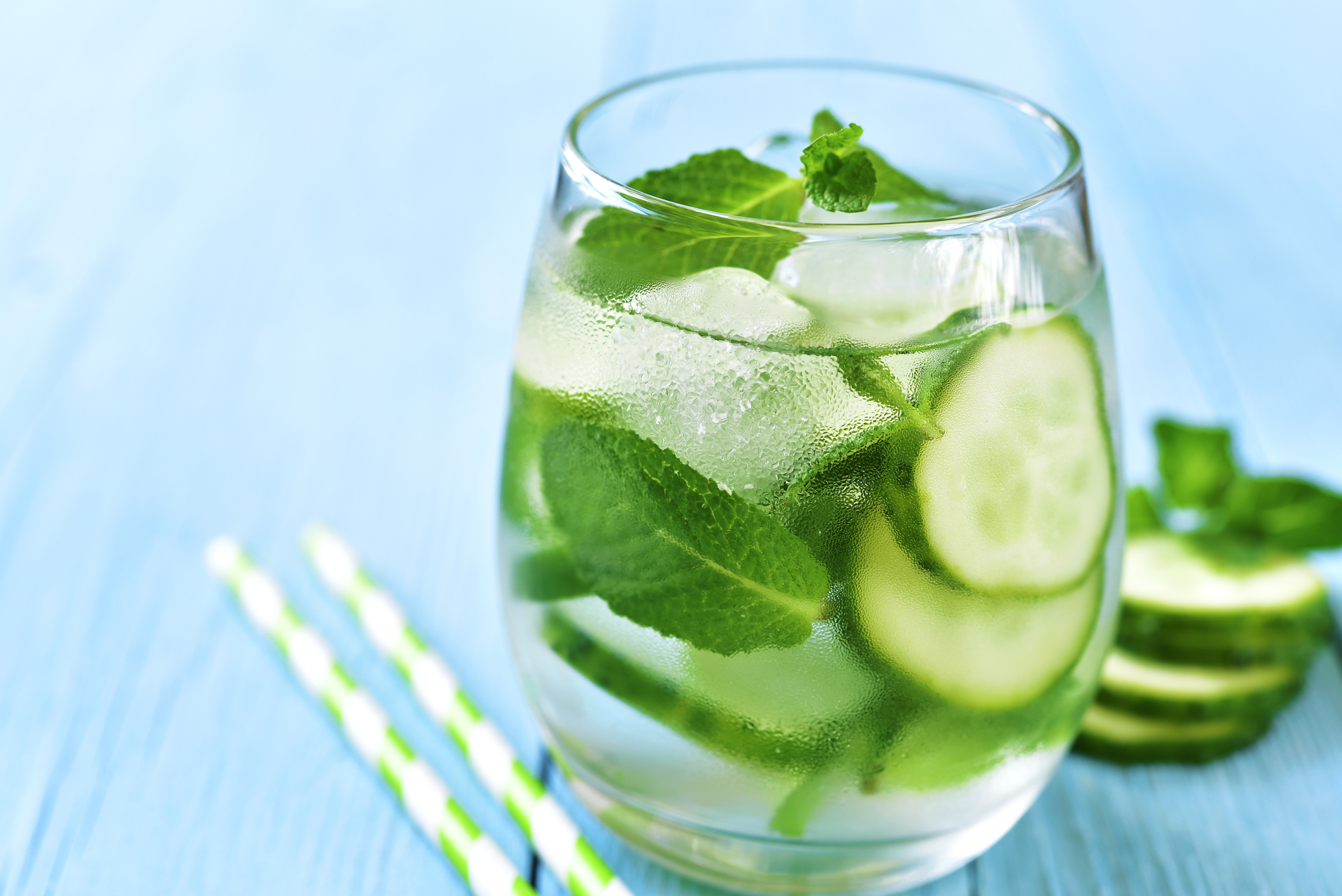Just days into June, and the mercury is already soaring with predictions indicating a steamy summer of 2023. Staying hydrated during the hot months ahead is essential – especially for older adults who may not register thirst as well, and who can be a risk for dehydration. While sugary, alcoholic or caffeinated beverages are not recommended to quench thirst, sparkling and infused waters can help make getting enough H2O more enjoyable.
If you’ve ever been to an upscale spa, you may have noticed cucumber-infused water served before and after services to encourage hydration and flush out any toxins released by massage – helping to prevent headaches or soreness. Cucumbers are not only refreshing but they are also filled with vitamins and minerals that can help fight inflammation and puffiness caused by vascular congestion, according to a recent Well+Good Healthy Drinks post.
Cucumbers contain vitamin C, potassium, magnesium, vitamin K, B vitamins, manganese, and copper. Vitamin C is an antioxidant that can help fight inflammation and oxidative stress. Potassium can help maintain fluid balance and lower blood pressure and vitamin K supports good bone health.
Eating water-rich foods like cucumbers, watermelon, grapes or strawberries can also boost hydration during the summer months. Infusing water with fruit, mint, cucumber, ginger or lemon can help make drinking water more appealing – bringing a little bit of the spa home. Adding a little salt or electrolytes to cucumber water may also help after intense exercise to prevent muscle cramps.
To create your own “spa water” at home, start with about 8 cups of cold, filtered water adding a thinly sliced and washed, seedless cucumber. Let the cucumber infuse for at least 1 hour – add mint or lemon if desired. Water can be kept in the refrigerator for up to 3 days.
According to the Cleveland Clinic, older adults are at increased risk for dehydration – a common cause of hospitalization for seniors over 65. Many seniors can’t tolerate drinking 8 ounces of water at once but are more likely to sip water or eat foods high in water content frequently throughout the day.
Indications of dehydration can include muscle weakness, lethargy, dry mouth, headache or dizziness, the inability to sweat, low blood pressure, rapid heart rate, fatigue or confusion. Darker urine can also indicate dehydration. Learn more about hydration for older adults by following this link to the National Council on Aging.






Add Your Voice
0 Comments
Join the Discussion